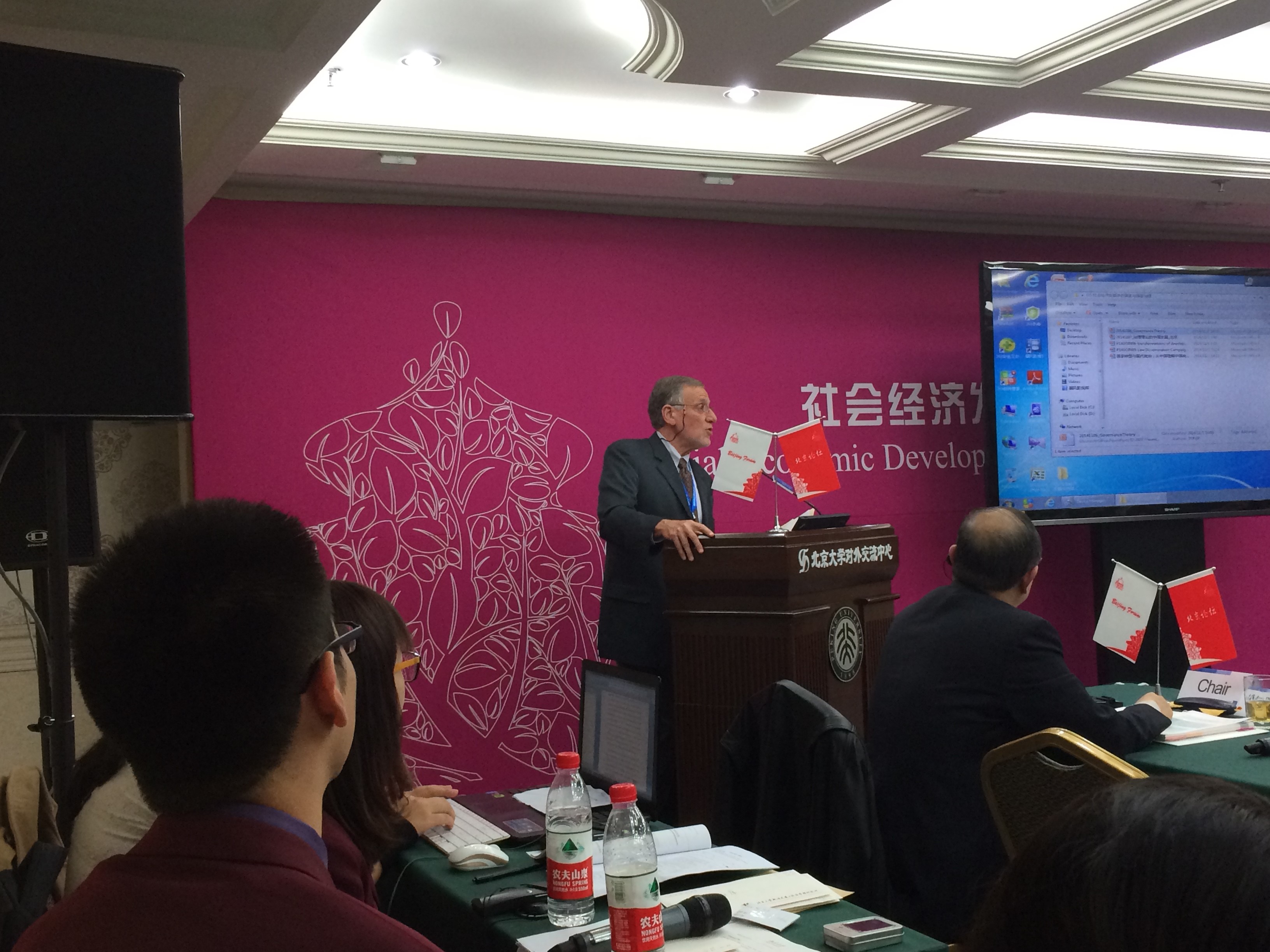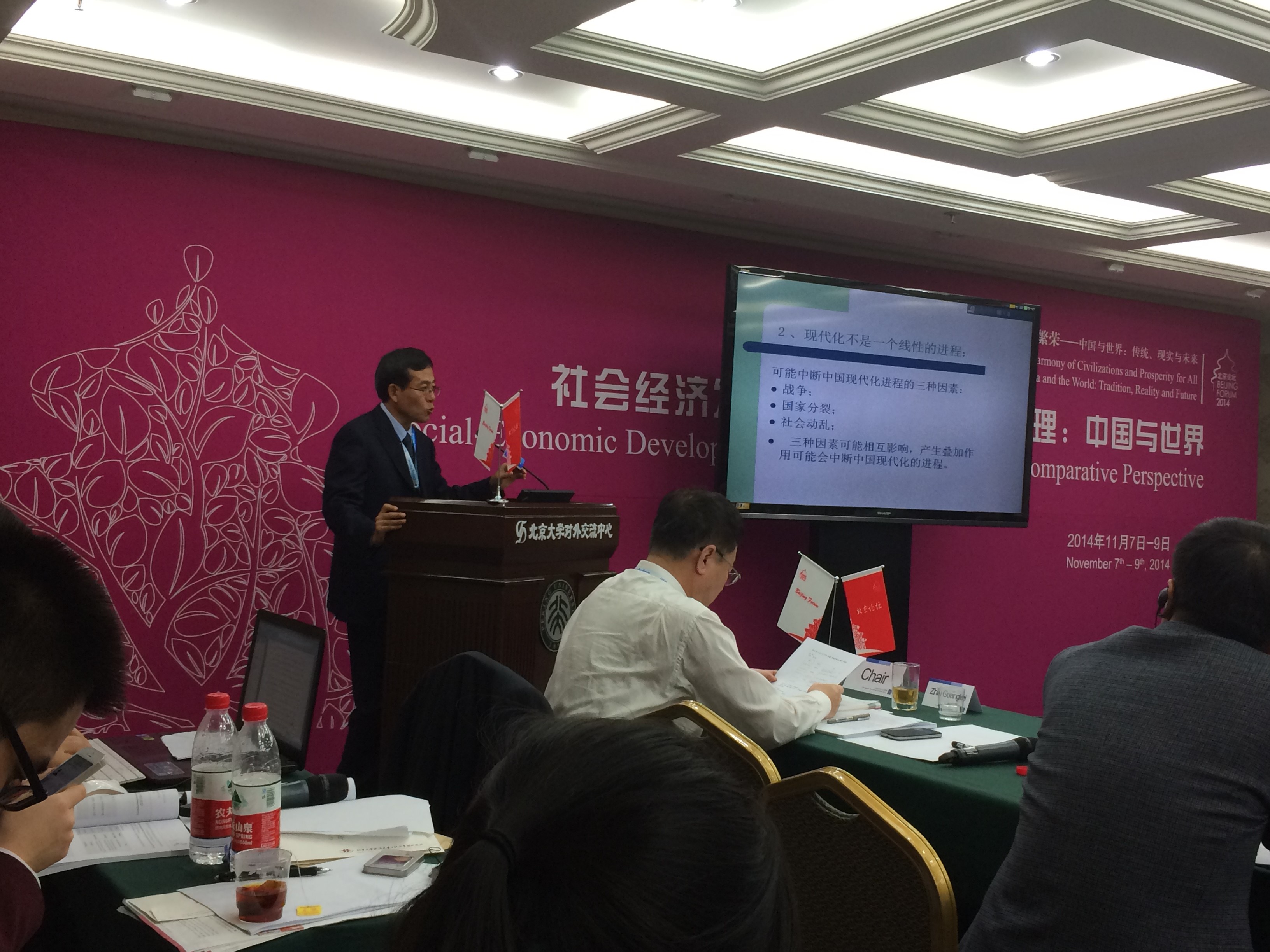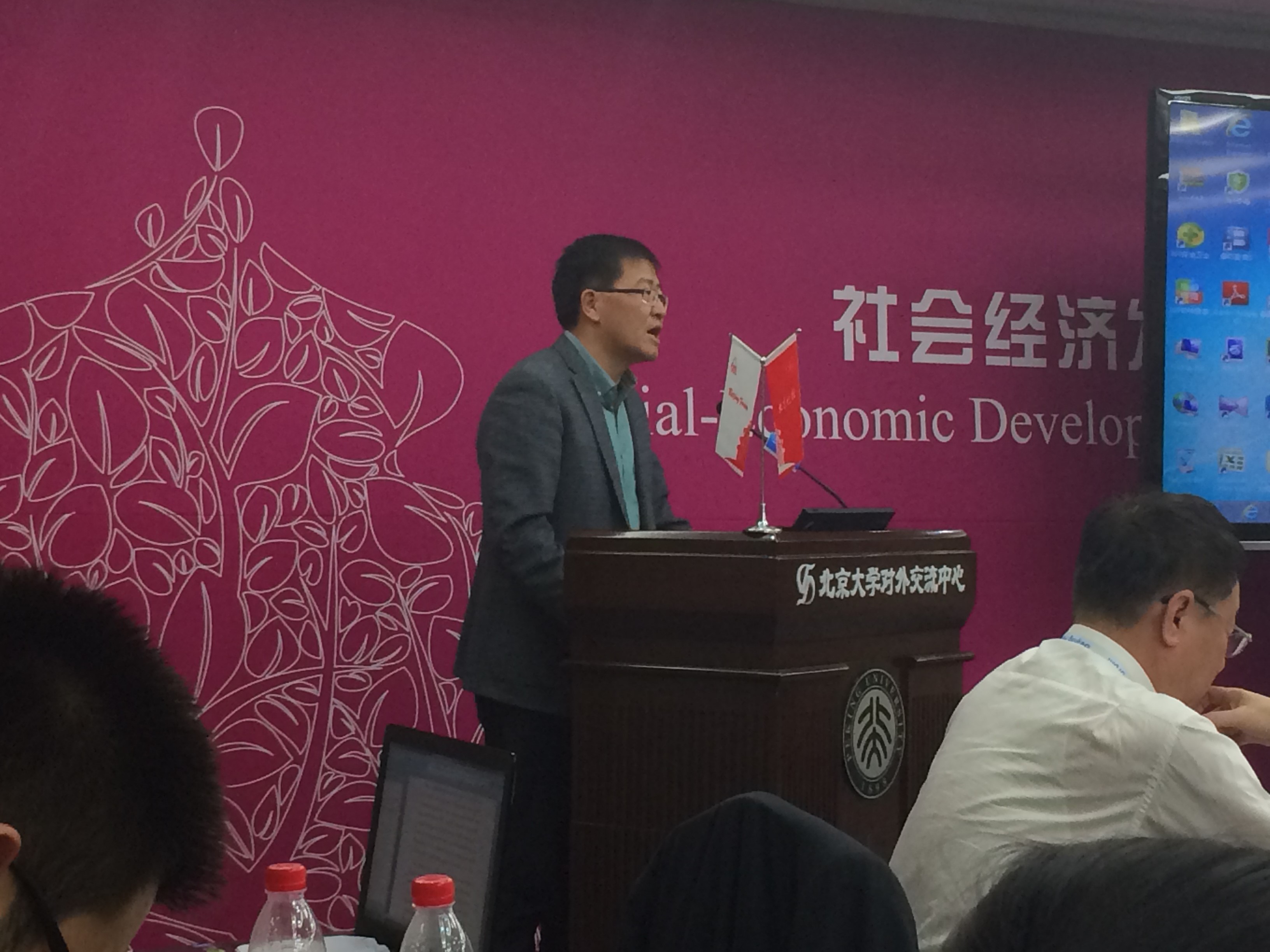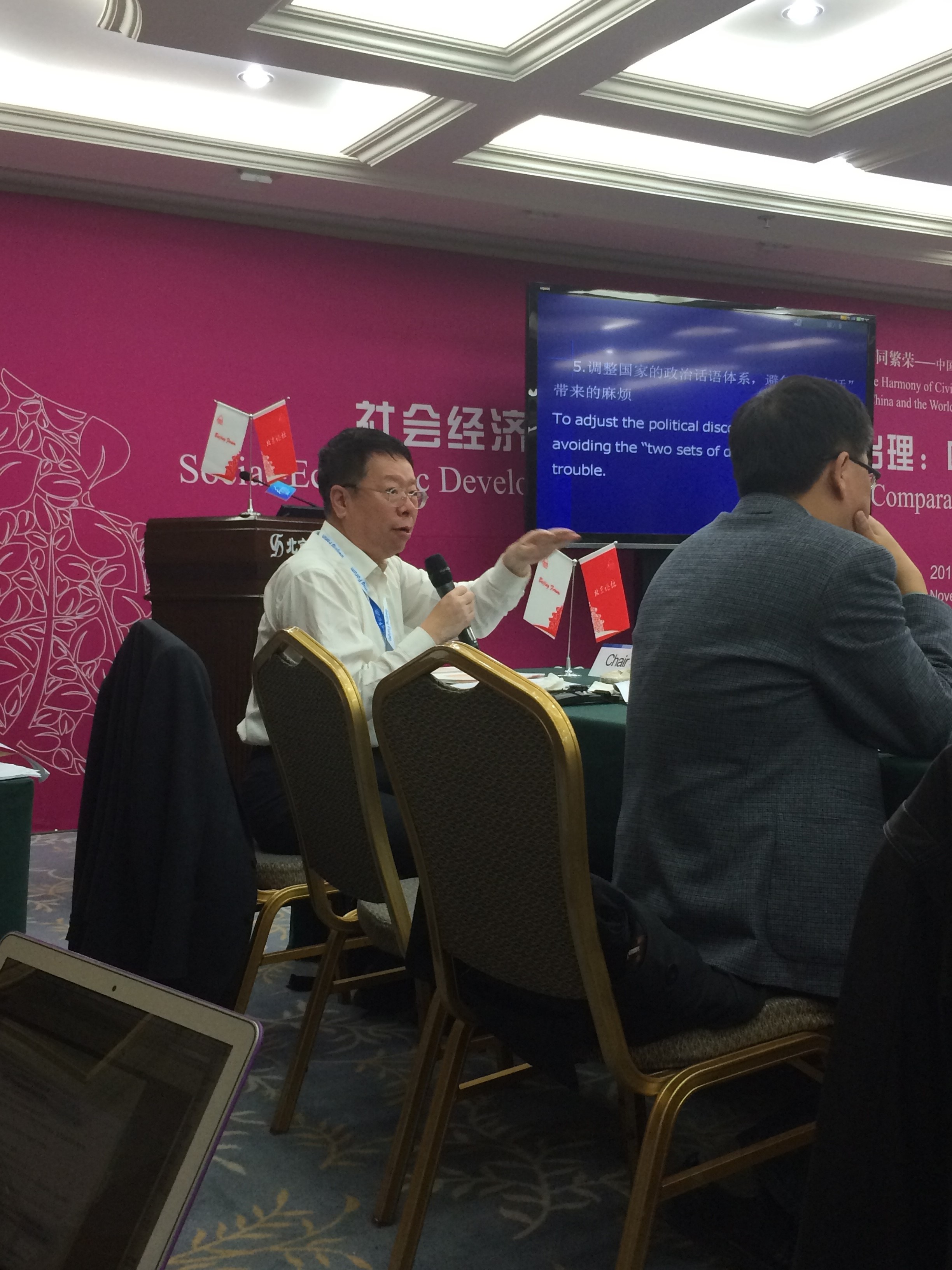Peking University, Nov. 7, 2014: This afternoon, the second panel of the Beijing Forum titled “Social-economic Development and State Governance in Comparative Perspective” was declared open at the Meeting Room No.2, Yingjie Exchange Center, Peking University. During the three-day Beijing Forum, four sessions under this topic gather scholars from different parts of the world to share their ideas on a more effectual and constructive state governance.

Professor Joel S. Midal
The first session on the afternoon of Nov. 7th started by Professor Joel S. Migdal from the University of Washington with the report titled “Authority and Development”. Focusing on the relations between state and society, he provided an outside-in perspective on governance, and explained four types of configurations of governance, including the state-society partnership in governance, state-society layering in governance, society replacing the state in governance, and social watchdog role over state actor, each supported by examples and studies conducted by him and his former students.
Professor Lin Shangli from Fudan University was the second speaker. In his report “National Transformation and Modern Politics: Understand Chinese Politics by Tracing Its Heritage and Development”, he noted that unlike western pattern of establishing the state, Chinese political revolution proceeded social revolution, and the notion of modern Chinese politics, based on the transformation of the country, differed from that of the west. After analyzing all the differences between China and the west on the formation of the nation, he concluded that Chinese politics had to be viewed according to its own historical and social circumstances, and showed his optimism toward a sustainable transformation for the next few decades in China.
Then, Professor Zhang Xiaojin from Tsinghua University gave the report “Discourse of Governance in China: Official Conception and Academic Discussion”. By using information in big databases, he compared the discourse of governance in different periods since 1940s, especially focusing on the subtle changes after the millennium when China began to enter the phase of modern politics. The quantity and the transition of focus of both government documents and academic papers, according to Professor Zhang, showed that state governance as a topic had become more and more popular and crucial, and that the official conception and academic discussion closely correlated with each other.

Professor Zhou Guanghui
After a short discussion and a break, Professor Zhou Guanghui from Jilin University started with the focus on territorial identity. In his report “Territorial Identity: The Fundamental Level of National Identity—an Analysis Based on the Perspective of the Modern State”, he first pointed out the difficulty of modernization in a country like China where the integration had not yet been accomplished. Then he discussed how we established national identity under current circumstances and attached high importance to territorial identity as the key to the solution.

Professor Yan Jirong
The report following—“Modernization and State Governance: The Issues and Challenges in China” was provided by Professor Yan Jirong from Peking University.
Professor Yan clarified the three tasks of state governance in modern society: the effectual power structure, state integration, and an open attitude toward modern political concepts such as freedom, democracy and the rule of law. He also pointed out the major challenges in Chinese state governance such as inequality and the lack of integration in terms of territory and ideas, which he said required more effective discussion and solutions.
Then, Professor Kim Jin-Young from Pusan National University gave a report “the Beijing Consensus and the Tasks of State Governance”. She on the one hand evaluated the Beijing Consensus, or the China Model as a successful example achieved without western-style political system, discussing its attractiveness, applicability, and the underlying values with a global echo. And on the other hand, she noted the difficulties for some other developing countries, which didn’t enjoy the historical heritage of centralized political system as China did, to emulate the China Model. She also talked about the challenges of a sustainable reform in state governance that China was now facing.
The last speaker was Professor Zhu Guanglei from Nankai University on the topic “Modernization and Post-Modernization Overlapping: the Biggest Problem Chinese Governance facing”. He first compared the situation in China with that of US, UK, Japan and Korea, indicating the distinctive overlapping of the two periods—modernization and post-modernization. Then he stated the difficulties brought by this situation, including the problem in achieving consensus, the dislocation in government development, and the misunderstanding of gap between different areas and the internal gap in the same area. In the end Professor Zhu concluded his report with solutions to address this double-pressure problem, attaching great importance to urbanization, the construction of service-oriented government, the necessary differentiation of social structure etc.

Professor Zhu Guanglei, answering student’s question
At the end of the afternoon session, the scholars had an in-depth discussion centering on the previous four reports. They also answered several questions from the students and further elucidated their ideas on state governance.
Reported By: Wu Zhangxin’an
Edited by: Choisum Kwok